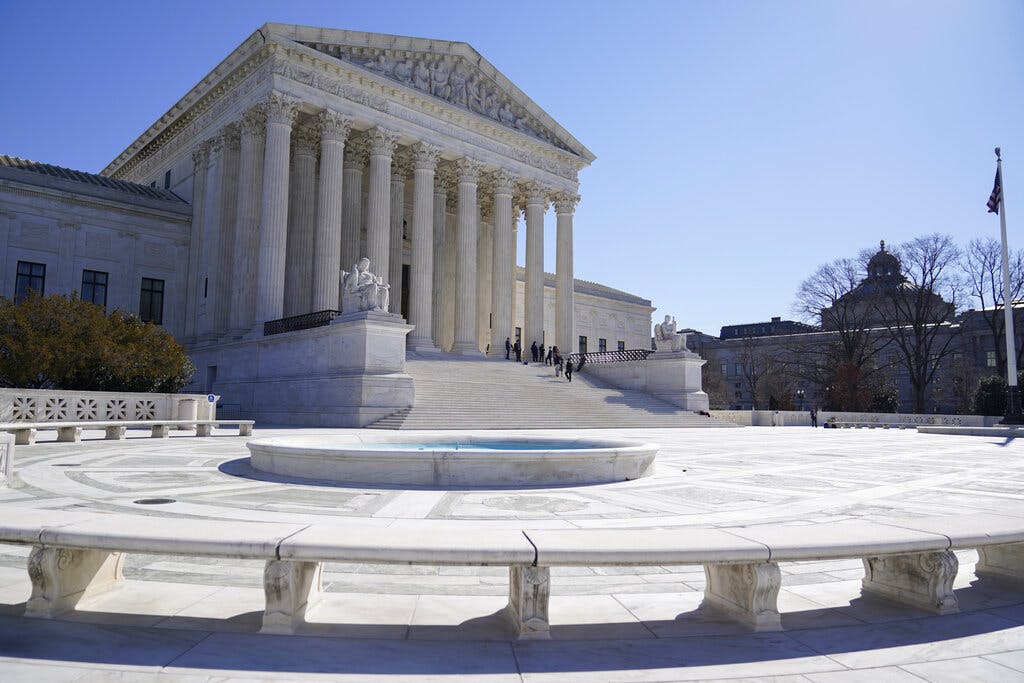Justices on Trial, in Effect, in the House Over Ethics Rules
Representatives and outside witnesses debated whether the high court should be bound by the rules that currently govern lower courts and that the Nine have thus far resisted.

The United States Supreme Court found itself on trial Wednesday before the House Judiciary Committee, with representatives and outside witnesses debating whether the high court should be bound by the rules that currently govern lower courts and that the Nine have thus far resisted.
If Democratic lawmakers have anything to do about it, the Supreme Court’s era of policing itself would be curtailed. That’s the gist of the hearing, titled, “Building Confidence in the Supreme Court Through Ethics and Recusal Reform.”
The session was chaired by a Democrat of Georgia, Representative Henry “Hank” Johnson, who averred that the issue “goes to the heart of our democracy” and presented a “crack in the foundation” of America’s rule of law.
Mr. Johnson sought to strike a nonpartisan tone, suggesting that “the propensity to transgress” was not limited to one party. Rather, he suggested, the court as a whole “has been trying to get away with more and more” and was liable “to get away with our Republic.”
An ethics regime for Supreme Court justices has long been a matter of congressional chatter, most recently in two bills, the For the People Act of 2021 and the Supreme Court Ethics Act. Both were introduced by Democrats and would extend a regulatory arm over the Nine.
The justices are, however, bound by 28 U.S. Code § 455, which calls for a judge to recuse himself “in any proceeding in which his impartiality might reasonably be questioned,” as well when the justice “has a personal bias or prejudice concerning a party” or “a financial interest in the subject matter in controversy.”
These dictates, however, have never been codified or uniformly applied. They have come under a spotlight in recent weeks with the disclosure that Justice Clarence Thomas’s wife, Virginia, texted President Trump’s top aide, Mark Meadows, regarding the certification of the 2020 election.
Calls for the recusal of Justice Thomas from cases related to January 6 have since proliferated, notwithstanding the “duty to sit” articulated by Chief Justice Rehnquist, which maintains that any justice not disqualified is required to serve, in the interests of avoiding a deadlocked court.
In 2019, Justice Elena Kagan told lawmakers that a self-imposed ethics code was “something that’s being thought very seriously about,” but nothing has yet come of that investigation.
Wednesday’s hearing was informed by this contretemps, with Representative Darrell Issa, a Republican, declaring that “actions of a spouse cannot, should not, and will not be grounds for impeachment.”
Mr. Issa argued that Justice Thomas has come under fire for “having the audacity to marry someone who had an opinion.” This side was taken up by another Republican, Representative James “Jim” Jordan, who ascribed the hearing’s existence to “Democratic frustration that they don’t control the court.”
The committee summoned witnesses to testify. Two of them — the executive director of Fix the Court, Gabriel Roth, and the deputy director at Citizens for Responsibility and Ethics in Washington, Donald Sherman — endorsed greater oversight of the high court.
Mr. Roth described the justices as operating “like nine separate law firms,” with some “flouting ethics rules.” He also testified that he “questions Justice Thomas’s impartiality.” Mr. Sherman agreed that Justice Thomas’s refusal to recuse “undermined public trust.”
A dissenting view was voiced by a one-time general counsel for the Office of Management & Budget, Mark Paoletta. He denounced a “40-year war on Justice Thomas” undertaken by “a left that hates” the court’s senior jurist.
With the confirmation of Judge Ketanji Brown Jackson in the rearview mirror, Wednesday’s hearings suggested that the partisan battle over the Supreme Court is not abating.

